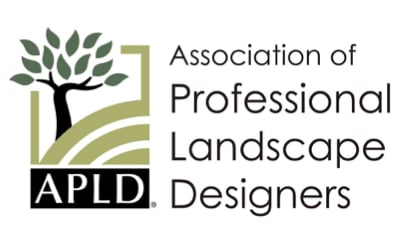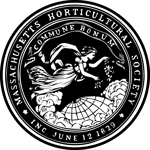August 22, 2024
Perennial Plant Symposium
at the Garden at Elm Bank

Featured Speakers

Trevor Smith
Weston Nurseries
Trevor Smith is Design and Education Manager at Weston Nurseries in Massachusetts. He holds several landscape certifications and is a past President and a current Trustee of the Ecological Landscape Alliance. He is an award-winning regenerative landscape designer, specializing in green infrastructure, native plant design, habitat creation, and implementation of ecological design principles. He is passionate about the natural world which inspires his commitment to sustainable landscaping practices in an era of climate change.

Holly Greenleaf
Greenleaf Design, LLC
Holly Greenleaf is an ecological landscape designer and owner of Greenleaf Design, LLC, a small design, build, and education business. She works with private landowners, businesses, nonprofits, and state and local governments to design, implement, and communicate ecologically-based landscape design solutions to benefit the health and wellbeing of people, plants, soils, water, and wildlife. She specializes in native plantings, green stormwater infrastructure, bioengineering and shoreland restoration, illustration, and other types of landscape visualization.

Toshi Yano
Perfect Earth Project
Before receiving his degree in Ornamental Horticulture from The City University of New York and embarking on his gardening career at Stonecrop Gardens in Cold Spring, NY, Toshi studied philosophy at The New School for Social Research, and for two decades thereafter was a Dabbler in Many Things, working in various capacities in music, film, retail, and supply chain management.
Toshi comes to Perfect Earth Project from Wethersfield Estate and Gardens, a 1,000-acre landscape in New York’s Hudson Valley, where he was the Director of Horticulture. He is a Director At Large at the American Public Gardens Association, where he chairs the Inclusion, Diversity, Equity & Accessibility Committee; a co-founder of BIPOC Hort, an advocacy group for people of color working in designed landscapes; and a member of the Design Council at the Hudson Valley Shakespeare Festival.

Evan Abramson
Landscape Interactions
Evan Abramson is a results-driven designer and planner on a mission to rebuild biologically diverse ecosystems through pollinator-plant interactions. As Founder and Principal of Landscape Interactions, he works closely with project partners along every step of the process, from conception through design, implementation, and maintenance. Under his leadership, Landscape Interactions has been responsible for over 300 acres of habitat installed in the Northeast United States, specifically targeting at-risk bee, butterfly, and moth species for each project location. He holds a Master of Science in Ecological Design from the Conway School of Landscape Design, Certificates in Permaculture Design and Biodynamic Gardening, and is author of the Lincoln Pollinator Action Plan and co-author of the Great Barrington Pollinator Action Plan.
Agenda & Sessions
-
Thoughtful Landcare
Trevor Smith - Weston Nurseries
Designing, creating, and caring for a landscape can be an impulsive act or it can be a well thought out process. Most give little thought to selecting plants and landscape materials, or daily and seasonal tasks, but simply go through the motions, performing them out of routine or tradition. Similarly, our garden’s impact on the environment is often overlooked. As our knowledge of the greater environment grows, we recognize that we need to be more conscious of our actions, not only for our clients but for the health and well-being of the planet. Listen in, as Trevor Smith addresses the old tropes of landscaping, and proposes a new way to think about stewardship, and teaches us how our actions can enhance, restore, or destroy entire ecosystems. -
Plant Communities: Functional Plant Roles for Restorative Gardens
Holly Greenleaf - Greenleaf Design, LLC
When designing a planting, we are creating an ecological community that will co-evolve over time. We want to give the community the ingredients – the various roles needed – to survive and hopefully thrive. We will dive into designing for the functional roles of plants in addition to their aesthetic beauty, specifically for ecological designs of rain gardens, lakeshore restoration projects, and mostly native gardens. Just like in the landscape design process where it is often helpful to start with a conceptual design – outlining the form and function of an element – we start the plant selection process with the goals we are trying to fulfill. We will discuss favorite plant species and common functional roles that have a positive impact for many different places and plant designs!
-
Old Solutions to New Problems
Toshi Yano - Perfect Earth Project
As ecological approaches to design and maintenance take hold in our gardens and priorities are reassessed, how do we find a successful balance between beauty and biodiversity? Where do beloved heirlooms and new introductions fit into the equation? Will we ever be able to just garden again? Join Toshi Yano, Director of Perfect Earth Project, a former Director of Horticulture at Wethersfield Estate & Garden, and a Director at Large at the American Public Gardens Association, as he grapples with these questions and more, and takes stock of the current state of landscape design and horticulture. -
Habit to Habitat: Converting Half an Acre of Lawn in Downtown Wellesley
Evan Abramson - Landscape Interactions
Developed landscapes provide immense opportunities for expanding regional biodiversity through the implementation of native pollination systems. What happens at the pollination scale has repercussions all the way through the food web to the largest predators and humans. Yet most efforts to restore pollinator habitat to date have increased the numbers of a few common species, rather than the range of wild pollinators needed for ecosystem resiliency. “Seeing lots of bees” does not necessarily mean that a landscape is pollinator-friendly. Between May and September 2023, Simon's Park in Wellesley was transformed from a half-acre of lawn into a biodiverse habitat of over 4,000 native plants supporting 76 at-risk native pollinator species. Join Landscape Interactions Principal Evan Abramson for a presentation followed by a walking tour of the new Simon's Park landscape design. The project features seven unique areas, including a native flowering grassland, bee and butterfly lawn, meadow, woodland edge, reading nook, shaded understory, and circular gathering space. Learn about Landscape Interactions' hands on collaboration with the Wellesley Natural Resources Commission and Department of Public Works to restore this landscape to higher levels of biodiversity. -
A short drive from our education sessions, attendees will self-drive and park behind the library for this optional tour. Meet Evan Abramson at the benches between the library parking lot and the adjacent park.
Wellesley Free Library
530 Washington Street
Wellesley, MA
Thoughtful Landcare
Trevor Smith - Weston Nurseries
Designing, creating, and caring for a landscape can be an impulsive act or it can be a well thought out process. Most give little thought to selecting plants and landscape materials, or daily and seasonal tasks, but simply go through the motions, performing them out of routine or tradition. Similarly, our garden’s impact on the environment is often overlooked. As our knowledge of the greater environment grows, we recognize that we need to be more conscious of our actions, not only for our clients but for the health and well-being of the planet. Listen in, as Trevor Smith addresses the old tropes of landscaping, and proposes a new way to think about stewardship, and teaches us how our actions can enhance, restore, or destroy entire ecosystems.
Plant Communities: Functional Plant Roles for Restorative Gardens
Holly Greenleaf - Greenleaf Design, LLC
When designing a planting, we are creating an ecological community that will co-evolve over time. We want to give the community the ingredients – the various roles needed – to survive and hopefully thrive. We will dive into designing for the functional roles of plants in addition to their aesthetic beauty, specifically for ecological designs of rain gardens, lakeshore restoration projects, and mostly native gardens. Just like in the landscape design process where it is often helpful to start with a conceptual design – outlining the form and function of an element – we start the plant selection process with the goals we are trying to fulfill. We will discuss favorite plant species and common functional roles that have a positive impact for many different places and plant designs!
Old Solutions to New Problems
Toshi Yano - Perfect Earth Project
As ecological approaches to design and maintenance take hold in our gardens and priorities are reassessed, how do we find a successful balance between beauty and biodiversity? Where do beloved heirlooms and new introductions fit into the equation? Will we ever be able to just garden again? Join Toshi Yano, Director of Perfect Earth Project, a former Director of Horticulture at Wethersfield Estate & Garden, and a Director at Large at the American Public Gardens Association, as he grapples with these questions and more, and takes stock of the current state of landscape design and horticulture.
Habit to Habitat: Converting Half an Acre of Lawn in Downtown Wellesley
Evan Abramson - Landscape Interactions
Developed landscapes provide immense opportunities for expanding regional biodiversity through the implementation of native pollination systems. What happens at the pollination scale has repercussions all the way through the food web to the largest predators and humans. Yet most efforts to restore pollinator habitat to date have increased the numbers of a few common species, rather than the range of wild pollinators needed for ecosystem resiliency. “Seeing lots of bees” does not necessarily mean that a landscape is pollinator-friendly. Between May and September 2023, Simon's Park in Wellesley was transformed from a half-acre of lawn into a biodiverse habitat of over 4,000 native plants supporting 76 at-risk native pollinator species. Join Landscape Interactions Principal Evan Abramson for a presentation followed by a walking tour of the new Simon's Park landscape design. The project features seven unique areas, including a native flowering grassland, bee and butterfly lawn, meadow, woodland edge, reading nook, shaded understory, and circular gathering space. Learn about Landscape Interactions' hands on collaboration with the Wellesley Natural Resources Commission and Department of Public Works to restore this landscape to higher levels of biodiversity.
A short drive from our education sessions, attendees will self-drive and park behind the library for this optional tour. Meet Evan Abramson at the benches between the library parking lot and the adjacent park.
Wellesley Free Library
530 Washington Street
Wellesley, MA

CEU Credits
Perennial Plant Symposium is eligible for 4.0 CEU credits from the Association of Professional Landscape Designers (APLD).
Register Today
Registration is now closed.

SINCE
1829.
Massachusetts Horticultural Society helps people change their lives and communities for the better through growing plants together.